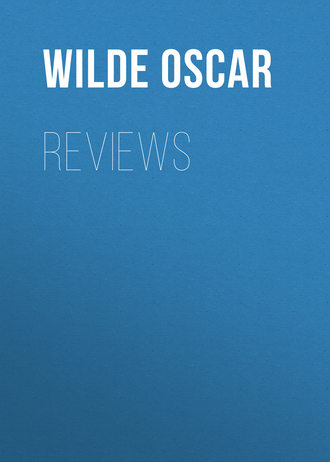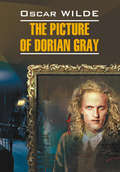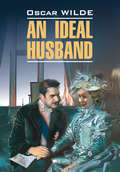
Оскар Уайльд
Reviews
In response to Miss Carpenter’s appeal, upon her return to England, the English Government founded several schools for women in India, and a few ‘Mary Carpenter Scholarships’ were endowed by benevolent persons. These schools were open to women of every caste; but while they have undoubtedly been of use, they have not realised the hopes of their founders, chiefly through the impossibility of keeping caste rules in them. Ramabai, in a very eloquent chapter, proposes to solve the problem in a different way. Her suggestion is that houses should be opened for the young and high-caste child-widows, where they can take shelter without the fear of losing their caste, or of being disturbed in their religious belief, and where they may have entire freedom of action as regards caste rules. The whole account given by the Pundita of the life of the high-caste Hindu lady is full of suggestion for the social reformer and the student of progress, and her book, which is wonderfully well written, is likely to produce a radical change in the educational schemes that at present prevail in India.
(1) Venetia Victrix. By Caroline Fitz Gerald. (Macmillan and Co.)
(2) Darwinism and Politics. By David Ritchie, Jesus College, Oxford. (Swan Sonnenschein and Co.)
(3) The High-Caste Hindu Woman. By the Pandita Ramabai Sarasvati. (Bell and Sons.)
OUIDA’S NEW NOVEL
(Pall Mall Gazette, May 17, 1889.)
Ouida is the last of the romantics. She belongs to the school of Bulwer Lytton and George Sand, though she may lack the learning of the one and the sincerity of the other. She tries to make passion, imagination, and poetry part of fiction. She still believes in heroes and in heroines. She is florid and fervent and fanciful. Yet even she, the high priestess of the impossible, is affected by her age. Her last book, Guilderoy as she calls it, is an elaborate psychological study of modern temperaments. For her, it is realistic, and she has certainly caught much of the tone and temper of the society of our day. Her people move with ease and grace and indolence. The book may be described as a study of the peerage from a poetical point of view. Those who are tired of mediocre young curates who have doubts, of serious young ladies who have missions, and of the ordinary figureheads of most of the English fiction of our time, might turn with pleasure, if not with profit, to this amazing romance. It is a resplendent picture of our aristocracy. No expense has been spared in gilding. For the comparatively small sum of £l, 11s. 6d. one is introduced to the best society. The central figures are exaggerated, but the background is admirable. In spite of everything, it gives one a sense of something like life.
What is the story? Well, we must admit that we have a faint suspicion that Ouida has told it to us before. Lord Guilderoy, ‘whose name was as old as the days of Knut,’ falls madly in love, or fancies that he falls madly in love, with a rustic Perdita, a provincial Artemis who has ‘a Gainsborough face, with wide-opened questioning eyes and tumbled auburn hair.’ She is poor but well-born, being the only child of Mr. Vernon of Llanarth, a curious recluse, who is half a pedant and half Don Quixote. Guilderoy marries her and, tiring of her shyness, her lack of power to express herself, her want of knowledge of fashionable life, returns to an old passion for a wonderful creature called the Duchess of Soriá. Lady Guilderoy becomes ice; the Duchess becomes fire; at the end of the book Guilderoy is a pitiable object. He has to submit to be forgiven by one woman, and to endure to be forgotten by the other. He is thoroughly weak, thoroughly worthless, and the most fascinating person in the whole story. Then there is his sister Lady Sunbury, who is very anxious for Guilderoy to marry, and is quite determined to hate his wife. She is really a capital sketch. Ouida describes her as ‘one of those admirably virtuous women who are more likely to turn men away from the paths of virtue than the wickedest of sirens.’ She irritates herself, alienates her children, and infuriates her husband:
‘You are perfectly right; I know you are always right; I admit you are; but it is just that which makes you so damnably odious!’ said Lord Sunbury once, in a burst of rage, in his town house, speaking in such stentorian tones that the people passing up Grosvenor Street looked up at his open windows, and a crossing-sweeper said to a match-seller, ‘My eye! ain’t he giving it to the old gal like blazes.’
The noblest character in the book is Lord Aubrey. As he is not a genius he, naturally, behaves admirably on every occasion. He begins by pitying the neglected Lady Guilderoy, and ends by loving her, but he makes the great renunciation with considerable effect, and, having induced Lady Guilderoy to receive back her husband, he accepts ‘a distant and arduous Viceroyalty.’ He is Ouida’s ideal of the true politician, for Ouida has apparently taken to the study of English politics. A great deal of her book is devoted to political disquisitions. She believes that the proper rulers of a country like ours are the aristocrats. Oligarchy has great fascinations for her. She thinks meanly of the people and adores the House of Lords and Lord Salisbury. Here are some of her views. We will not call them ideas:
The House of Lords wants nothing of the nation, and therefore it is the only candid and disinterested guardian of the people’s needs and resources. It has never withstood the real desire of the country: it has only stood between the country and its impetuous and evanescent follies.
A democracy cannot understand honour; how should it? The Caucus is chiefly made up of men who sand their sugar, put alum in their bread, forge bayonets and girders which bend like willow-wands, send bad calico to India, and insure vessels at Lloyd’s which they know will go to the bottom before they have been ten days at sea.
Lord Salisbury has often been accused of arrogance; people have never seen that what they mistook for arrogance was the natural, candid consciousness of a great noble that he is more capable of leading the country than most men composing it would be.
Democracy, after having made everything supremely hideous and uncomfortable for everybody, always ends by clinging to the coat tails of some successful general.
The prosperous politician may be honest, but his honesty is at best a questionable quality. The moment that a thing is a métier, it is wholly absurd to talk about any disinterestedness in the pursuit of it. To the professional politician national affairs are a manufacture into which he puts his audacity and his time, and out of which he expects to make so much percentage for his lifetime.
There is too great a tendency to govern the world by noise.
Ouida’s aphorisms on women, love, and modern society are somewhat more characteristic:
Women speak as though the heart were to be treated at will like a stone, or a bath.
Half the passions of men die early, because they are expected to be eternal.
It is the folly of life that lends charm to it.
What is the cause of half the misery of women? That their love is so much more tenacious than the man’s: it grows stronger as his grows weaker.
To endure the country in England for long, one must have the rusticity of Wordsworth’s mind, and boots and stockings as homely.
It is because men feel the necessity to explain that they drop into the habit of saying what is not true. Wise is the woman who never insists on an explanation.
Love can make its own world in a solitude à deux, but marriage cannot.
Nominally monogamous, all cultured society is polygamous; often even polyandrous.
Moralists say that a soul should resist passion. They might as well say that a house should resist an earthquake.
The whole world is just now on its knees before the poorer classes: all the cardinal virtues are taken for granted in them, and it is only property of any kind which is the sinner.
Men are not merciful to women’s tears as a rule; and when it is a woman belonging to them who weeps, they only go out, and slam the door behind them.
Men always consider women unjust to them, when they fail to deify their weaknesses.
No passion, once broken, will ever bear renewal.
Feeling loses its force and its delicacy if we put it under the microscope too often.
Anything which is not flattery seems injustice to a woman.
When society is aware that you think it a flock of geese, it revenges itself by hissing loudly behind your back.
Of descriptions of scenery and art we have, of course, a large number, and it is impossible not to recognise the touch of the real Ouida manner in the following:
It was an old palace: lofty, spacious, magnificent, and dull. Busts of dusky yellow marble, weird bronzes stretching out gaunt arms into the darkness, ivories brown with age, worn brocades with gold threads gleaming in them, and tapestries with strange and pallid figures of dead gods, were all half revealed and half obscured in the twilight. As he moved through them, a figure which looked almost as pale as the Adonis of the tapestry and was erect and motionless like the statue of the wounded Love, came before his sight out of the darkness. It was that of Gladys.
It is a manner full of exaggeration and overemphasis, but with some remarkable rhetorical qualities and a good deal of colour. Ouida is fond of airing a smattering of culture, but she has a certain intrinsic insight into things and, though she is rarely true, she is never dull. Guilderoy, with all its faults, which are great, and its absurdities, which are greater, is a book to be read.
Guilderoy. By Ouida. (Chatto and Windus.)
SOME LITERARY NOTES – VI
(Woman’s World, June 1889.)
A writer in the Quarterly Review for January 1874 says:
No literary event since the war has excited anything like such a sensation in Paris as the publication of the Lettres à une Inconnue. Even politics became a secondary consideration for the hour, and academicians or deputies of opposite parties might be seen eagerly accosting each other in the Chamber or the street to inquire who this fascinating and perplexing ‘unknown’ could be. The statement in the Revue des Deux Mondes that she was an Englishwoman, moving in brilliant society, was not supported by evidence; and M. Blanchard, the painter, from whom the publisher received the manuscripts, died most provokingly at the very commencement of the inquiry, and made no sign. Some intimate friends of Mérimée, rendered incredulous by wounded self-love at not having been admitted to his confidence, insisted that there was no secret to tell; their hypothesis being that the Inconnue was a myth, and the letters a romance, with which some petty details of actual life had been interwoven to keep up the mystification.
But an artist like Mérimée would not have left his work in so unformed a state, so defaced by repetitions, or with such a want of proportion between the parts. The Inconnue was undoubtedly a real person, and her letters in answer to those of Mérimée have just been published by Messrs. Macmillan under the title of An Author’s Love.
Her letters? Well, they are such letters as she might have written. ‘By the tideless sea at Cannes on a summer day,’ says their anonymous author, ‘I had fallen asleep, and the plashing of the waves upon the shore had doubtless made me dream. When I awoke the yellow paper-covered volumes of Prosper Mérimée’s Lettres à une Inconnue lay beside me; I had been reading the book before I fell asleep, but the answers – had they ever been written, or had I only dreamed?’ The invention of the love-letters of a curious and unknown personality, the heroine of one of the great literary flirtations of our age, was a clever idea, and certainly the author has carried out his scheme with wonderful success; with such success indeed that it is said that one of our statesmen, whose name occurs more than once in the volume, was for a moment completely taken in by what is really a jeu-d’esprit, the first serious joke perpetrated by Messrs. Macmillan in their publishing capacity. Perhaps it is too much to call it a joke. It is a fine, delicate piece of fiction, an imaginative attempt to complete a real romance. As we had the letters of the academic Romeo, it was obviously right that we should pretend we had the answers of the clever and somewhat mondaine Juliet. Or is it Juliet herself, in her little Paris boudoir, looking over these two volumes with a sad, cynical smile? Well, to be put into fiction is always a tribute to one’s reality.
As for extracts from these fascinating forgeries, the letters should be read in conjunction with those of Mérimée himself. It is difficult to judge of them by samples. We find the Inconnue first in London, probably in 1840.
Little (she writes) can you imagine the storm of indignation you aroused in me by your remark that your feelings for me were those suitable for a fourteen-year-old niece. Merci. Anything less like a respectable uncle than yourself I cannot well imagine. The rôle would never suit you, believe me, so do not try it.
Now in return for your story of the phlegmatic musical animal who called forth such stormy devotion in a female breast, and who, himself cold and indifferent, was loved to the extent of a watery grave being sought by his inamorata as solace for his indifference, let me ask the question why the women who torment men with their uncertain tempers, drive them wild with jealousy, laugh contemptuously at their humble entreaties, and fling their money to the winds, have twice the hold upon their affections that the patient, long-suffering, domestic, frugal Griseldas have, whose existences are one long penance of unsuccessful efforts to please? Answer this comprehensively, and you will have solved a riddle which has puzzled women since Eve asked questions in Paradise.
Later on she writes:
Why should all natures be alike? It would make the old saws useless if they were, and deprive us of one of the truest of them all, ‘Variety is the spice of life.’ How terribly monotonous it would be if all the flowers were roses, every woman a queen, and each man a philosopher. My private opinion is that it takes at least six men such as one meets every day to make one really valuable one. I like so many men for one particular quality which they possess, and so few men for all. Comprenez-vous?
In another place:
Is it not a trifle dangerous, this experiment we are trying of a friendship in pen and ink and paper? A letter. What thing on earth more dangerous to confide in? Written at blood heat, it may reach its destination when the recipient’s mental thermometer counts zero, and the burning words and thrilling sentences may turn to ice and be congealed as they are read… A letter; the most uncertain thing in a world of uncertainties, the best or the worst thing devised by mortals.
Again:
Surely it was for you, mon cher, that the description given of a friend of mine was originally intended. He is a trifle cynical, this friend, and decidedly pessimistic, and of him it was reported that he never believed in anything until he saw it, and then he was convinced that it was an optical illusion. The accuracy of the description struck me.
They seem to have loved each other best when they were parted.
I think I cannot bear it much longer, this incessant quarrelling when we meet, and your unkindness during the short time that you are with me. Why not let it all end? it would be better for both of us. I do not love you less when I write these words; if you could know the sadness which they echo in my heart you would believe this. No, I think I love you more, but I cannot understand you. As you have often said, our natures must be very different, entirely different; if so, what is this curious bond between them? To me you seem possessed with some strange restlessness and morbid melancholy which utterly spoils your life, and in return you never see me without overwhelming me with reproaches, if not for one thing, for another. I tell you I cannot, will not, bear it longer. If you love me, then in God’s name cease tormenting me as well as yourself with these wretched doubts and questionings and complaints. I have been ill, seriously ill, and there is nothing to account for my illness save the misery of this apparently hopeless state of things existing between us. You have made me weep bitter tears of alternate self-reproach and indignation, and finally of complete miserable bewilderment as to this unhappy condition of affairs. Believe me, tears like these are not good to mingle with love, they are too bitter, too scorching, they blister love’s wings and fall too heavily on love’s heart. I feel worn out with a dreary sort of hopelessness; if you know a cure for pain like this send it to me quickly.
Yet, in the very next letter, she says to him:
Although I said good-bye to you less than an hour ago, I cannot refrain from writing to tell you that a happy calm which seems to penetrate my whole being seems also to have wiped out all remembrance of the misery and unhappiness which has overwhelmed me lately. Why cannot it always be so, or would life perhaps be then too blessed, too wholly happy for it to be life? I know that you are free to-night, will you not write to me, that the first words my eyes fall upon to-morrow shall prove that to-day has not been a dream? Yes, write to me.
The letter that immediately follows is one of six words only:
Let me dream – Let me dream.
In the following there are interesting touches of actuality:
Did you ever try a cup of tea (the national beverage, by the way) at an English railway station? If you have not, I would advise you, as a friend, to continue to abstain! The names of the American drinks are rather against them, the straws are, I think, about the best part of them. You do not tell me what you think of Mr. Disraeli. I once met him at a ball at the Duke of Sutherland’s in the long picture gallery of Stafford House. I was walking with Lord Shrewsbury, and without a word of warning he stopped and introduced him, mentioning with reckless mendacity that I had read every book he had written and admired them all, then he coolly walked off and left me standing face to face with the great statesman. He talked to me for some time, and I studied him carefully. I should say he was a man with one steady aim: endless patience, untiring perseverance, iron concentration; marking out one straight line before him so unbending that despite themselves men stand aside as it is drawn straightly and steadily on. A man who believes that determination brings strength, strength brings endurance, and endurance brings success. You know how often in his novels he speaks of the influence of women, socially, morally, and politically, yet his manner was the least interested or deferential in talking that I have ever met with in a man of his class. He certainly thought this particular woman of singularly small account, or else the brusque and tactless allusion to his books may perhaps have annoyed him as it did me; but whatever the cause, when he promptly left me at the first approach of a mutual acquaintance, I felt distinctly snubbed. Of the two men, Mr. Gladstone was infinitely more agreeable in his manner, he left one with the pleasant feeling of measuring a little higher in cubic inches than one did before, than which I know no more delightful sensation. A Paris, bientôt.
Elsewhere, we find cleverly-written descriptions of life in Italy, in Algiers, at Hombourg, at French boarding-houses; stories about Napoleon III., Guizot, Prince Gortschakoff, Montalembert, and others; political speculations, literary criticisms, and witty social scandal; and everywhere a keen sense of humour, a wonderful power of observation. As reconstructed in these letters, the Inconnue seems to have been not unlike Mérimée himself. She had the same restless, unyielding, independent character. Each desired to analyse the other. Each, being a critic, was better fitted for friendship than for love. ‘We are so different,’ said Mérimée once to her, ‘that we can hardly understand each other.’ But it was because they were so alike that each remained a mystery to the other. Yet they ultimately attained to a high altitude of loyal and faithful friendship, and from a purely literary point of view these fictitious letters give the finishing touch to the strange romance that so stirred Paris fifteen years ago. Perhaps the real letters will be published some day. When they are, how interesting to compare them!
The Bird-Bride, by Graham R. Tomson, is a collection of romantic ballads, delicate sonnets, and metrical studies in foreign fanciful forms. The poem that gives its title to the book is the lament of an Eskimo hunter over the loss of his wife and children.
Years agone, on the flat white strand,
I won my sweet sea-girl:
Wrapped in my coat of the snow-white fur,
I watched the wild birds settle and stir,
The grey gulls gather and whirl.
One, the greatest of all the flock,
Perched on an ice-floe bare,
Called and cried as her heart were broke,
And straight they were changed, that fleet bird-folk,
To women young and fair.
Swift I sprang from my hiding-place
And held the fairest fast;
I held her fast, the sweet, strange thing:
Her comrades skirled, but they all took wing,
And smote me as they passed.
I bore her safe to my warm snow house;
Full sweetly there she smiled;
And yet, whenever the shrill winds blew,
She would beat her long white arms anew,
And her eyes glanced quick and wild.
But I took her to wife, and clothed her warm
With skins of the gleaming seal;
Her wandering glances sank to rest
When she held a babe to her fair, warm breast,
And she loved me dear and leal.
Together we tracked the fox and the seal,
And at her behest I swore
That bird and beast my bow might slay
For meat and for raiment, day by day,
But never a grey gull more.
Famine comes upon the land, and the hunter, forgetting his oath, slays four sea-gulls for food. The bird-wife ‘shrilled out in a woful cry,’ and taking the plumage of the dead birds, she makes wings for her children and for herself, and flies away with them.
‘Babes of mine, of the wild wind’s kin,
Feather ye quick, nor stay.
Oh, oho! but the wild winds blow!
Babes of mine, it is time to go:
Up, dear hearts, and away!’
And lo! the grey plumes covered them all,
Shoulder and breast and brow.
I felt the wind of their whirling flight:
Was it sea or sky? was it day or night?
It is always night-time now.
Dear, will you never relent, come back?
I loved you long and true.
O winged white wife, and our children three,
Of the wild wind’s kin though you surely be,
Are ye not of my kin too?
Ay, ye once were mine, and, till I forget,
Ye are mine forever and aye,
Mine, wherever your wild wings go,
While shrill winds whistle across the snow
And the skies are blear and grey.
Some powerful and strong ballads follow, many of which, such as The Cruel Priest, Deid Folks’ Ferry, and Märchen, are in that curious combination of Scotch and Border dialect so much affected now by our modern poets. Certainly dialect is dramatic. It is a vivid method of re-creating a past that never existed. It is something between ‘A Return to Nature’ and ‘A Return to the Glossary.’ It is so artificial that it is really naïve. From the point of view of mere music, much may be said for it. Wonderful diminutives lend new notes of tenderness to the song. There are possibilities of fresh rhymes, and in search for a fresh rhyme poets may be excused if they wander from the broad highroad of classical utterance into devious byways and less-trodden paths. Sometimes one is tempted to look on dialect as expressing simply the pathos of provincialisms, but there is more in it than mere mispronunciations. With the revival of an antique form, often comes the revival of an antique spirit. Through limitations that are sometimes uncouth, and always narrow, comes Tragedy herself; and though she may stammer in her utterance, and deck herself in cast-off weeds and trammelling raiment, still we must hold ourselves in readiness to accept her, so rare are her visits to us now, so rare her presence in an age that demands a happy ending from every play, and that sees in the theatre merely a source of amusement. The form, too, of the ballad – how perfect it is in its dramatic unity! It is so perfect that we must forgive it its dialect, if it happens to speak in that strange tongue.
Then by cam’ the bride’s company
Wi’ torches burning bright.
‘Tak’ up, tak’ up your bonny bride
A’ in the mirk midnight!’
Oh, wan, wan was the bridegroom’s face
And wan, wan was the bride,
But clay-cauld was the young mess-priest
That stood them twa beside!
Says, ‘Rax me out your hand, Sir Knight,
And wed her wi’ this ring’;
And the deid bride’s hand it was as cauld
As ony earthly thing.
The priest he touched that lady’s hand,
And never a word he said;
The priest he touched that lady’s hand,
And his ain was wet and red.
The priest he lifted his ain right hand,
And the red blood dripped and fell.
Says, ‘I loved ye, lady, and ye loved me;
Sae I took your life mysel’.’
…
Oh! red, red was the dawn o’ day,
And tall was the gallows-tree:
The Southland lord to his ain has fled
And the mess-priest’s hangit hie!
Of the sonnets, this To Herodotus is worth quoting:
Far-travelled coaster of the midland seas,
What marvels did those curious eyes behold!
Winged snakes, and carven labyrinths of old;
The emerald column raised to Heracles;
King Perseus’ shrine upon the Chemmian leas;
Four-footed fishes, decked with gems and gold:
But thou didst leave some secrets yet untold,
And veiled the dread Osirian mysteries.
And now the golden asphodels among
Thy footsteps fare, and to the lordly dead
Thou tellest all the stories left unsaid
Of secret rites and runes forgotten long,
Of that dark folk who ate the Lotus-bread
And sang the melancholy Linus-song.
Mrs. Tomson has certainly a very refined sense of form. Her verse, especially in the series entitled New Words to Old Tunes, has grace and distinction. Some of the shorter poems are, to use a phrase made classical by Mr. Pater, ‘little carved ivories of speech.’ She is one of our most artistic workers in poetry, and treats language as a fine material.
(1) An Author’s Love: Being the Unpublished Letters of Prosper Mérimée’s ‘Inconnue.’ (Macmillan and Co.)
(2) The Bird-Bride: A Volume of Ballads and Sonnets. By Graham R. Tomson. (Longmans, Green and Co.)






